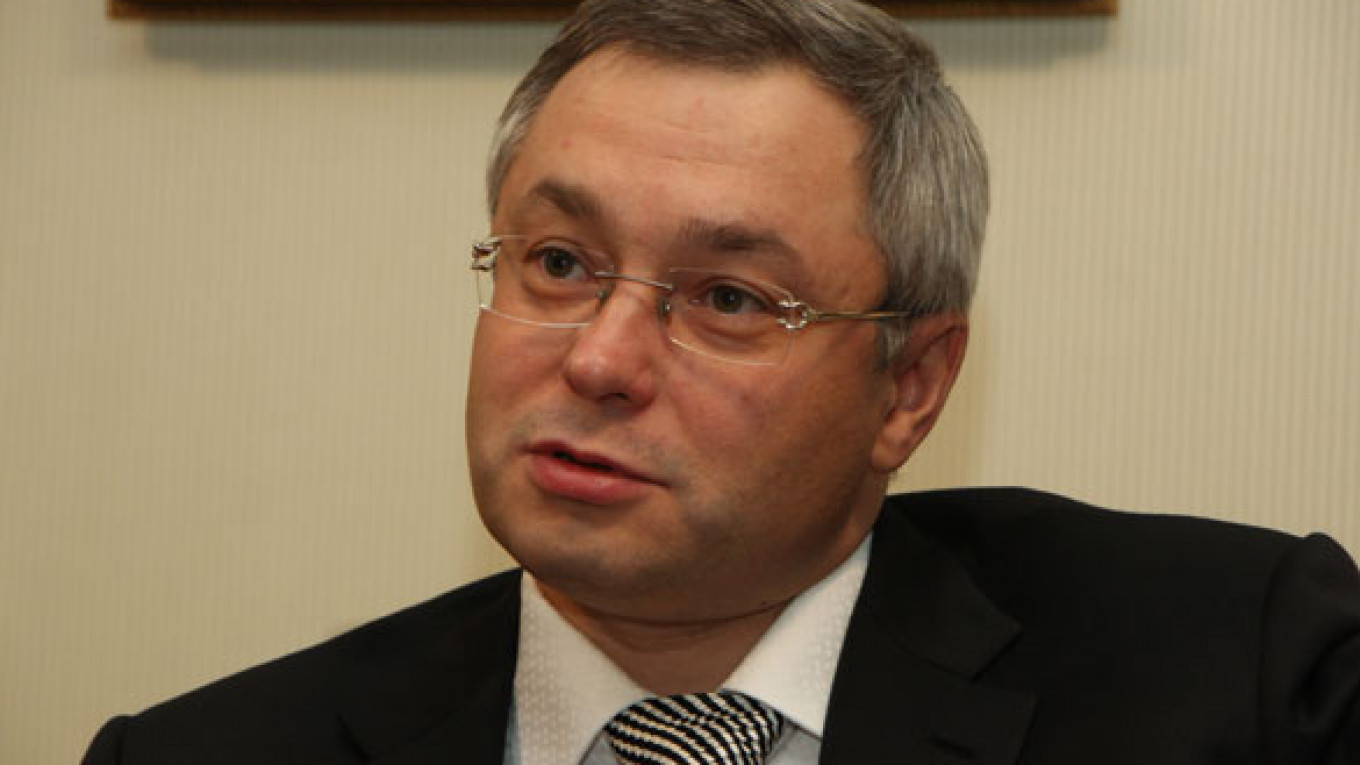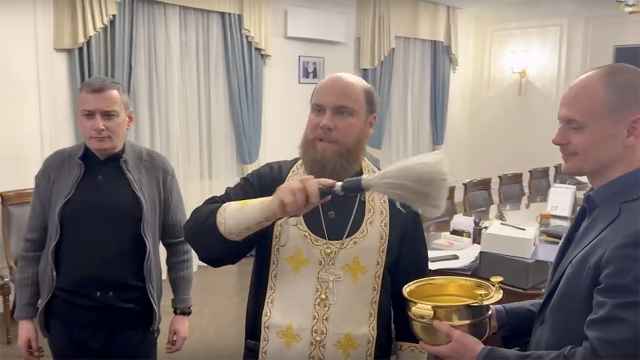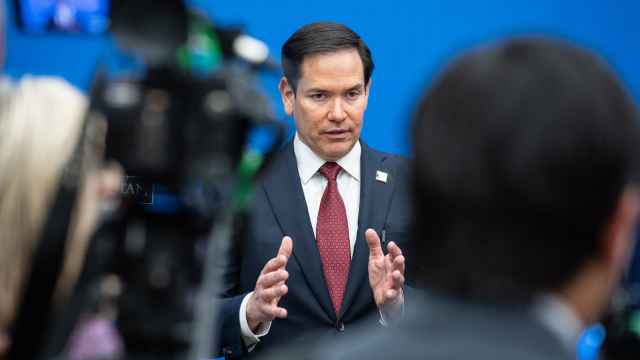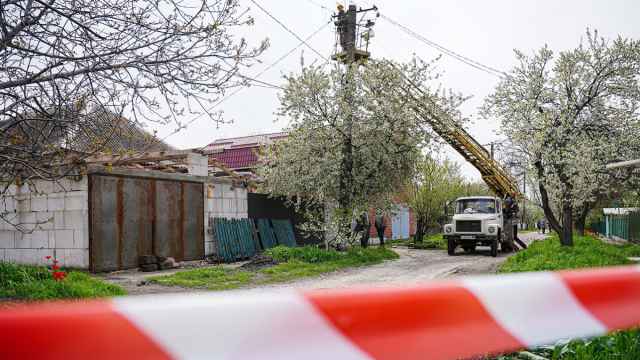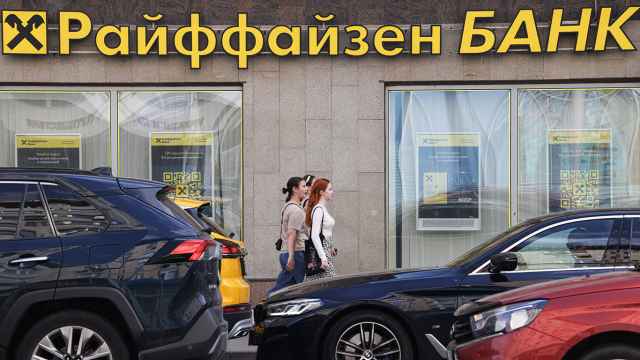The only billionaire in the country at the head of a political party, Gleb Fetisov, has sold out of all his assets, showing his resolve to jostle for a greater role in current affairs.
Worth an estimated $1.9 billion, Fetisov let the word out about the move at a congress that his nascent Green Alliance-People's Party held to take onboard a few prominent detractors of the Kremlin. The new members, such as the outspoken Gennady Gudkov, who was ousted from the State Duma after jumping on the back of street protests last winter and challenging the government, could create difficulties for the party going forward.
"Any businessman would be facing big risks in this situation," said Alexei Makarkin, an analyst at the Center for Political Technologies, a consulting firm. "The party is moving toward a more oppositional stance."
Gudkov and Fetisov will co-chair the new organization, called the People's Political Party Green and Social Democratic Alliance, which incorporated Gudkov's recently minted Social Democratic Party during the congress.
Fetisov's selling spree began when he bid farewell to his small Moy Bank in November. A month later, he sold his prime asset, a 14.2-percent stake in Altimo, the telecoms arm of billionaire Mikhail Fridman's Alfa Group, according to comments that he made on the sidelines of the party congress last week, the Russian edition of Forbes reported. Together with that stake, he also got rid of a 40 percent share in a partnership with a Chinese state company, a joint venture that owned 27,000 retail stores in China.
Fetisov admitted that he quit business because of the change in his views. "In his words, business holdings are an excellent target when you move into opposition," Forbes said, paraphrasing Fetisov's comments.
A spokesman for Fetisov declined to confirm the report directly, but said about Fetisov that "he has been giving all his attention to politics since November."
Andrei Kochetkov, head of political research at the Fund for the Development of Civil Society, headed by a former chief of the Kremlin's internal policy department, dismissed the notion that the government could crack down on a business if officials did not like the owner's political rise. The Kremlin now favors political competition from "serious" parties, he said, suggesting that Fetisov simply unloaded flawed assets or, in announcing his departure from business, sought to "stir interest in his persona."
Moy Bank is having difficulty servicing payments and has requested aid from the Central Bank, Vedomosti reported last week. Some of its influential private depositors, such as film director Nikita Mikhalkov and Kremlin economic advisor Sergei Glaziev, are lobbying for a bailout, the report said.
In stepping up his involvement in politics and distancing himself from the world of profits and losses, Fetisov is moving down an avenue that his fellow billionaire Mikhail Prokhorov appears to be backing out of. Prokhorov sat on a huge pile of cash when he founded the liberal Civil Platform political party in 2012. He recently stepped down as party chairman and bought an expensive stake in Uralkali, a major producer of fertilizers, following what Makarkin described as unsuccessful regional campaigns in elections in September.
"While Prokhorov is being disappointed in politics, Fetisov is more optimistic," Makarkin said.
Unlike Prokhorov, the other billionaire did not make his fortune buying out assets from the state on the cheap. Fetisov received his crown-jewel asset, the Altimo stake, in the course of his work building the telecoms giant, which includes 48 percent in mobile phone operator VimpelCom. In an October interview with The Moscow Times, he recalled his work as a court-appointed manager to bring back to life an alumina refinery in a remote Siberian town, where people were "genuinely hungry" because the town's main employer shut down.
"I realized one thing after that stage in my life: There are no unmanageable tasks in business and social development," he said in the interview.
While Fetisov's party won a handful of seats in regional legislatures across the country in September, he stumbled in his personal electoral runs. He did not make it onto the ballot for the Moscow mayoral election in September because he did not muster enough votes from municipal lawmakers, a condition for mounting a campaign. He came in third, with 11 percent, in the October race for the mayor of Tomsk, in Siberia.
"It is not bad for a candidate who runs for the first time and in an unfamiliar region," Makarkin said. "But it is not so good for a billionaire with ambitions."
Perhaps realizing the challenge, Fetisov is enlisting to the cause of promoting the party's more colorful and experienced political leaders, such as Gudkov. The elections to the Moscow City Duma, which are to take place some time before the end of September, could serve as a litmus test for the party's reinforcement.
Contact the author at medetsky@imedia.ru
A Message from The Moscow Times:
Dear readers,
We are facing unprecedented challenges. Russia's Prosecutor General's Office has designated The Moscow Times as an "undesirable" organization, criminalizing our work and putting our staff at risk of prosecution. This follows our earlier unjust labeling as a "foreign agent."
These actions are direct attempts to silence independent journalism in Russia. The authorities claim our work "discredits the decisions of the Russian leadership." We see things differently: we strive to provide accurate, unbiased reporting on Russia.
We, the journalists of The Moscow Times, refuse to be silenced. But to continue our work, we need your help.
Your support, no matter how small, makes a world of difference. If you can, please support us monthly starting from just $2. It's quick to set up, and every contribution makes a significant impact.
By supporting The Moscow Times, you're defending open, independent journalism in the face of repression. Thank you for standing with us.
Remind me later.


